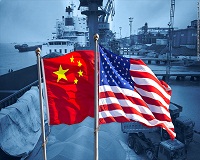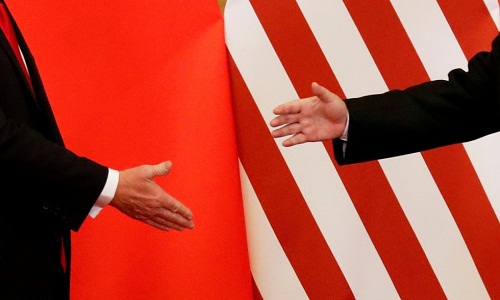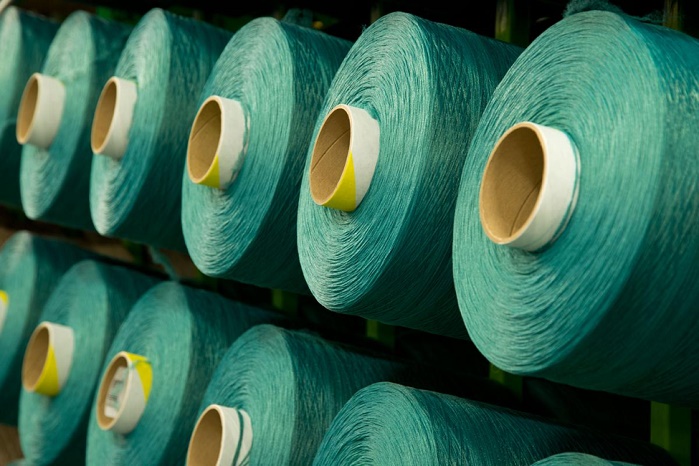FW
Major global brands are now beginning to source from Ethiopia. Such interest is believed to stem from rising wages in China, labor unrest and violence in Cambodia, and ineffective compliance with rules and regulations in various countries in South Asia. Also, Ethiopia has been making efforts to create favorable conditions in order to attract investors.
The textile and apparel sector in Ethiopia is centered around spinning, weaving, knitting, and finishing. A few years ago, the country set ambitious goals for the textile and garment industry with production, productivity and export performance of the industry set to be further increased. Currently, the textile and apparel sector in Ethiopia employs 47,000 people. According to plans, the number of skilled workers will increase to 3,50,000 within the next five years in 12 industrial parks.
Initiatives are being given to foreign investors or shareholders. This is expected to help the country in professionalising of the state-owned companies and bring in foreign currency. Several major foreign companies have invested in the textile and clothing industry in Ethiopia and a number of high profile brand names have started sourcing apparel from the country. In 2014, H&M began purchasing textiles and garments from Ethiopia. UK retailers Tesco, George and Primark also began sourcing from Ethiopia earlier that year.
"Rising trade aberrations are proving to be detrimental for Chinese and American textile and apparel organisations. Expressing resentment, Xu Yingxin, VP, China National Textile and Apparel Council, stated tariff increases are not just a tax on consumers, they will also bring uncertainty to the stable global supply chain for top brands. Neither American consumers or fashion brands, nor Chinese textile and apparel manufacturers will benefit from the conflict, he added. He was speaking on the sidelines of 2018 China Textile and Apparel Trade Show New York with Messe Frankfurt North America. About 1,000 exhibitors from 17 countries attended the event, with more than 600 from China. Close to 1,000 types of products listed in the textile and apparel categories are a part of the $200 billion in Chinese imports potentially subject to 10 per cent tariffs imposed by the Office of the US Trade Representative. Hearings will be held Aug 20-23 before a final decision will be made at the end of August. The products, mainly raw materials such as yarns and fabric, range from silk to cotton, to lace to embroidery, and total about $4 billion, said Xu."
 Rising trade aberrations are proving to be detrimental for Chinese and American textile and apparel organisations. Expressing resentment, Xu Yingxin, VP, China National Textile and Apparel Council, stated tariff increases are not just a tax on consumers, they will also bring uncertainty to the stable global supply chain for top brands. Neither American consumers or fashion brands, nor Chinese textile and apparel manufacturers will benefit from the conflict, he added. He was speaking on the sidelines of 2018 China Textile and Apparel Trade Show New York with Messe Frankfurt North America.
Rising trade aberrations are proving to be detrimental for Chinese and American textile and apparel organisations. Expressing resentment, Xu Yingxin, VP, China National Textile and Apparel Council, stated tariff increases are not just a tax on consumers, they will also bring uncertainty to the stable global supply chain for top brands. Neither American consumers or fashion brands, nor Chinese textile and apparel manufacturers will benefit from the conflict, he added. He was speaking on the sidelines of 2018 China Textile and Apparel Trade Show New York with Messe Frankfurt North America.
About 1,000 exhibitors from 17 countries attended the event, with more than 600 from China. Close to 1,000 types of products listed in the textile and apparel categories are a part of the $200 billion in Chinese imports potentially subject to 10 per cent tariffs imposed by the Office of the US Trade Representative. Hearings will be held Aug 20-23 before a final decision will be made at the end of August. The products, mainly raw materials such as yarns and fabric, range from silk to cotton, to lace to embroidery, and total about $4 billion, said Xu.
Julia Hughes, President of Washington-based United States Fashion Industry Association (USFIA), also opposed tariff hikes. As per the association's annual survey, for the second year in a row, a protectionist trade agenda in the US is the top concern for the American fashion industry. Companies are concerned about broader implications of protectionism for the US economy, consumers and the global economy, Hughes said in an interview at the trade show.
Impact on sourcing
Hughes says one strategy for American companies is to find other sourcing opportunities but most sourcing executives say there aren't enough viable options to replace China. Companies are sourcing from other countries for many reasons, Everyone has some sourcing in China; many have some sourcing in Vietnam. And Bangladesh, India and Indonesia are the sources, as well as countries in the Western Hemisphere. She further added that there isn’t enough sourcing in the world to replace China and especially not the quality sourcing that American brands and retailers want.
options to replace China. Companies are sourcing from other countries for many reasons, Everyone has some sourcing in China; many have some sourcing in Vietnam. And Bangladesh, India and Indonesia are the sources, as well as countries in the Western Hemisphere. She further added that there isn’t enough sourcing in the world to replace China and especially not the quality sourcing that American brands and retailers want.
Hughes believes the Trump administration has heard her association's message, so in order to not hurt consumers; the tariffs have been focused on manufacturing inputs rather than clothing, footwear and home textiles. The association will continue its opposition to consumer products its members import and sell in the US and are not on the tariff list. Pan, deputy general manager of Hong Gang Textile, a supplier of upscale warp-knitted fabrics, whose business with US companies accounts for less than 20 per cent, added only through innovation can you avoid being replaced.
For the past 40 years, China’s textile industry has been integrated into the global textile and apparel supply and value chains. China and US textile and apparel trade hit more than $44 billion in 2017 compared with $4.9 billion in 2001. China remains the biggest textile exporter to the US, while the US is the No. 1 export market for China's textile industry, accounting for 17 per cent of China’s exports in the industry. On the prevailing situation, Xu highlighted that Chinese companies will continue to be the most stable and reliable suppliers of American brands, and a long-term mutually beneficial partnership between China and the US textile industries will remain unchanged.
Surat’s Yarn Expo will be held from August 4 to 6, 2018. The three-day exhibition will host around 80 exhibitors, all renowned yarn producing companies from across India. The exhibitors will showcase a wide variety and latest developments in yarns in natural as well as manmade like cotton, polyester, wool, silk, linen, viscose, ramie, spandex, etc.
The yarn show will also include various types of fancy and specialty yarns like elastic, metallic, embroidery, textured, slub, special effects fancy mélange, dope dyed spun, low torque, space dyed and hundreds of other yarn varieties.
A fashion show which will be jointly hosted with the National Institute of Fashion Technology. A seminar will see discussions on topics like developments in nylon yarn and cotton and yarn market trends. There will also be a presentation by Yes Bank on facilities provided to MSMEs. There will be a conclave, whose topic is future opportunities in yarn and fabrics.
Yarn Expo 2018 will see the participation of yarn producers like Reliance, Bhilosa, Perfect Filament, Shahlon, Grasim, RSWM, Indian Rayon, Nimbark Fashions, Century Enka, Arvind, Madhusudan Group and many others. This is the first edition of Yarn Expo and it’s being organised by the Southern Gujarat Chambers of Commerce and Industry.
For the quarter ended June 30 Welspun India’s consolidated net profit rose 2.4 per cent. Total income during the quarter under review was up 1.6 per cent. The volume growth of eight per cent was mostly offset by a change in drawback rates resulting in a reported growth rate of 1.6 per cent.
The numbers were also impacted by an increase in cotton prices. Cotton and equivalent yarn make up for 45 per cent of the company’s cost. Cotton costs have increased substantially, from Rs 42,000 per candy to Rs 48,000 per candy.
The textile firm sees positive growth momentum in volumes and is confident of achieving its annual guidance for revenues and profits. Welspun continues to pursue its differentiation strategy based on branding, innovation, sustainability and its patented traceability solution.
Welspun India, part of the Welspun Group, will invest Rs 900 crores this year as part of its plan to set up a flooring textile facility in Telangana. The textile company has already invested Rs 70 crores of the total outlay in the first quarter of the year. The facility for flooring solutions is the first of its kind in India. The facility will be commissioned by December 2019 and is spread over 27 million sq ft.
The US is looking at rejoining the Trans-Pacific Partnership (TPP). The main aim is to counter China. The US intends to renegotiate the trade pact and sign revised free trade agreements with Japan, South Korea and Canada. TPP was proposed in 2010. As a multilateral trade framework outside the World Trade Organization, the TPP intends to further reduce tariff barriers and enhance unified market rules including intellectual property protection.
The trade pact was widely seen as a way to press China into further lowering tariffs, opening markets and complying with rules drafted by developed nations. However, the US decided to withdraw from the TPP in January this year. Also the United States and the European Union have agreed to avoid an all-out trade war and work towards zero tariffs, zero non-tariff barriers, and zero subsidies on non-auto industrial goods.
The EU also plans to buy more US liquefied natural gas and soybeans. Both sides will also iron out disputes on steel and aluminum exports. The US is likely to sign trade pacts with other trading partners, including Japan, South Korea, and Canada. These agreements among developed nations would represent nearly 90 per cent of the global economy. In this way the US hopes to force China to make more concessions in lowering tariffs, reducing subsidies, opening up markets, and enhancing intellectual property rights protection.
Having spent $21.6 billion on Vietnamese products in the first half of the year, the United States remains Vietnam’s largest export market accounting for 19 per cent of the country’s total export value as of July 15.
However, the US now wants Vietnamese export businesses to improve their capacity and build new supply chains. In addition, Vietnamese enterprises need to expand scale and automate production line to ensure quality and quantity of supply. Also, the government needs to issue guidelines to minimise administrative costs and support enterprises through trade promotions.
The US also wants the National Trade Promotion Programme to identify players capable of adapting to the market, maintaining partnerships, being socially and environmentally responsible, building branding and sustainable development. In addition, changes to US trade policies need to be quickly understood in order to develop appropriate solutions to assist enterprises as they shift their production and business strategies in order to maintain their export advantage in the market.
Việtnam must also step up the process of building a fair and transparent legal system. This was a key factor to attracting foreign investment and creating favourable conditions for domestic enterprises to develop.
The United Kingdom has expressed interest in joining the revamped TPP trade deal, even before the 11 nation agreement has been ratified. Now known as the Comprehensive and Progressive Agreement for Trans-Pacific Partnership it’s expected to come into force next year.
Japan and Mexico have ratified the treaty and it needs another four other signatories to ratify before it starts. The UK first wants to seek free trade deals with the United States, Australia and New Zealand. It sees these as crucial and strategic economic relationships that must continue on a sound footing after Brexit. It then wants to go further and break new ground and be at the heart of the world’s fastest growing region and be part of the CPTPP. This covers markets across the world from Canada to Chile, Mexico to Vietnam. The agreement reduces 95 per cent of tariffs along with other barriers to trade.
The UK is seeking public feedback on the idea, wanting to prevent its isolation from the rest of the world after it exits the European Union. South Korea is said to have contacted multiple members about joining, while Taiwan, eager to counter mainland China's push for its own trade sphere, has shown interest as well.
The Kerala government’s plan to implement a package to modernise and revive the ailing textile sector has failed to start. The government, despite resuscitating and taking over sick public sector undertakings, had not made any serious initiative for implementing the package.
An expert committee headed by P Nandakumar recommended a one-time fund infusion of Rs 494.81 crore of which Rs 317.89 crore was capital investment and Rs 176.92 crore was working capital — for reviving the 17 mills in the public and cooperative sectors.
The 17 mills together offer direct employment to 5,000 persons and indirect employment to 15,000 persons. The package had suggested a slew of reforms to give a fresh lease of life to the mills and optimise its employment potential. Implementation of the package is expected to address problems thrown up by demonetisation, inherent problems plaguing the sector such as lower capacity utilisation, and outdated technology.
Import of manmade fibers and yarns by India have risen since June 2017 when the goods and services tax was implemented. Import of polyester staple fiber and viscose staple fiber increased five per cent and 20 per cent respectively during the financial year 2017-18 including a similar increase in imports of other products in the polyester value chain.
A considerable drop in import duty was observed after implementation of GST, which encouraged cheap imports. This has come as a great relief to domestic manufacturers. The revision in import duty is positive for domestic polyester manufacturers. The demand for low price polyester has been constantly increasing which is expected to continue in the future as well. Thus the increase in import duty is expected to benefit domestic players at large.
In case of polyester spun yarn, viscose spun yarn and nylon spun yarn imports, the increase was 94 per cent, 526 per cent and 15 per cent, respectively, which is impacting domestic manmade fiber and yarn manufacturers in a big way. Indian polyester manufacturers including Reliance, Filatex and JBF have added heavily to their existing manufacturing capacities.
Indian traders in the textile value chain were importing a lot of apparel from Bangladesh due to the low labor cost there, the low customs duty.
Jeanologia will to introduce a new capsule collection called ‘Made in India’ at Denims and Jeans India show to be held on August 1-2, 2018. Produced through completely digital methods by using a combination of technologies, the collection offers a premium and commercial product at a competitive price while respecting the environment and workers’ health.
Jeanologia will also participate in ‘The dawn of a new era in denim’ panel, on August 2, 2018 where it will discuss the benefits of a digital revolution in bringing a radical change to denim production and making the whole production process sustainable and eco-efficient.
Operating in India for last 14 years, Jeanologia promotes the use of sustainability in the production of jeans in India. Nowadays, over 80 per cent of the sustainable production of garment finishing is done by this company. The company, owning to its experienced local technical service, is able to cater to its clients’ needs in a fast and efficient way.











